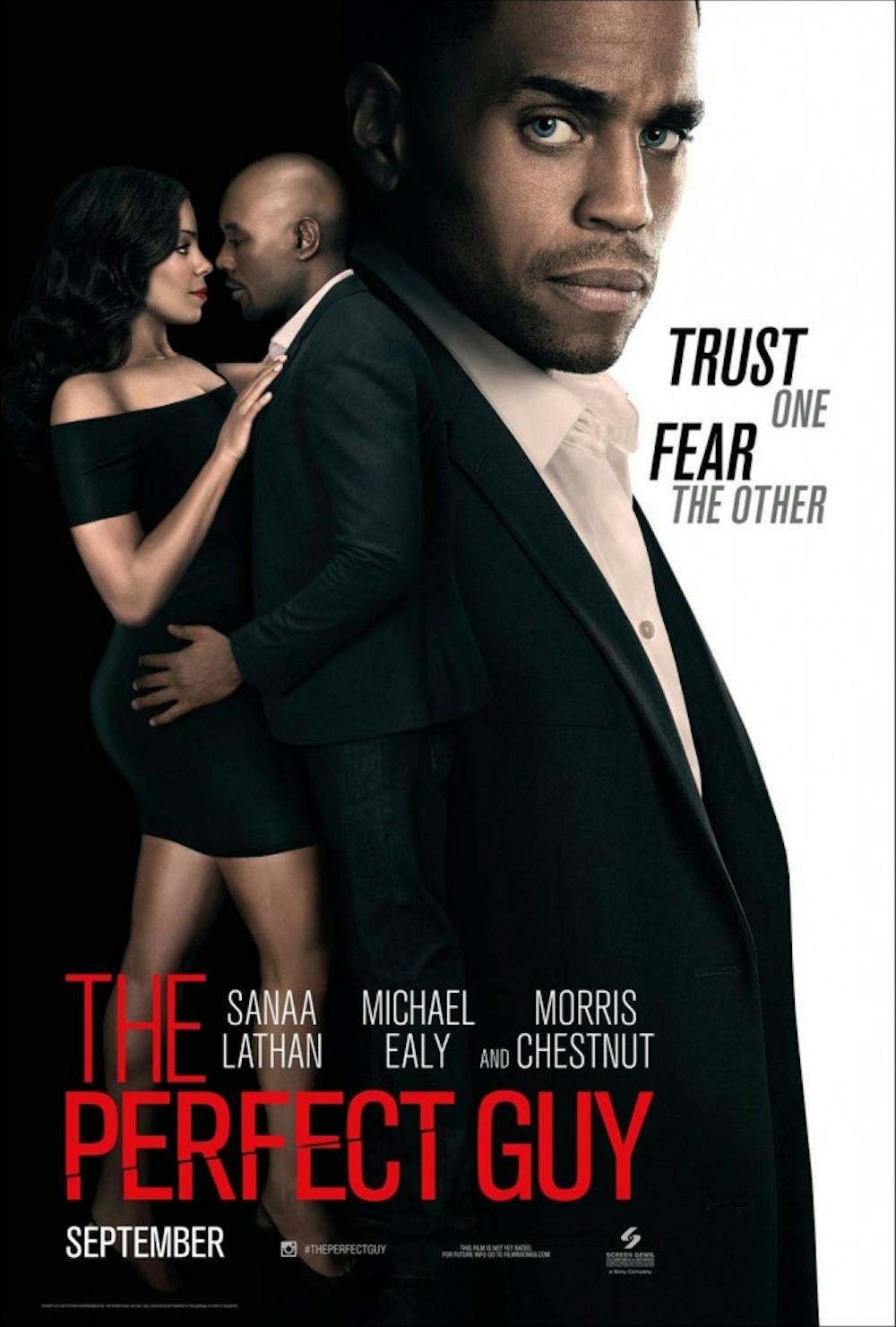Grade: C-
Opening at number one last weekend — and continuing the five-week string of African-American lead films dominating the box office — “The Perfect Guy” had all of the makings of a good, guilty-pleasure, girl’s-night-out-thriller, but it couldn’t have fallen more flat.
Sanaa Lathan and Morris Chestnut are together again, having first worked together on “The Best Man,” along with a young — and beautiful — Michael Ealy, which, on paper, sounds like a dream team. From the start of the film until the end, though, the first of many issues is that there isn’t any real chemistry between Lathan and either of her leading men.
The first few scenes of the movie open with high-powered lobbyist Leah Vaughn, played by Lathan, and her boyfriend of nearly two years, Dave, played by Chestnut, heading to a party for a couple of mutual friends. Leah, having seen Dave be super cute with a kid at the party, can’t help but address her ticking biological clock and urge him to propose and start a family with her. When he says he’s not ready, she breaks up with him.
This is where I want to interject and offer that Leah has a habit of doing this throughout the film. The woman makes hasty decisions and doesn’t often rationalize their consequences. She even says at one point “I jump into things sometimes,” which explains why she has fallen into another relationship in less than three months, this time with IT analyst and smooth operator Carter Duncan, played by Ealy.
As someone who loves a good — and by “good” I actually mean “garbage” — Tyler Perry drama, I was expecting a similar guilty pleasure in “The Perfect Guy.” This movie had the makings of everything I look for: romance, action and beautiful and successful characters, but it lacked any level of believability. In fact, to believe Lathan’s character is genuinely foolish enough to fall into the trap that is Carter Duncan is to suspend all reasonable notions of reality.
As stated previously, I’m a reluctant fan of Tyler Perry, so my standards aren’t all that high to begin with.
To put it simply, Duncan is a creepy dude. He has vague responses to any and all questions about his past, he works in an especially shady industry — he’s essentially a hacker who busts into people’s private networks — and he just gives off a generally weird vibe. Leah, a successful lobbyist, a woman whose career depends on her ability to read people, should have been able to notice that she was dating a creep. However, she seems to take to him throughout the course of a month in a way she never took to her boyfriend Dave, with whom she was with for two years.
Something just doesn’t add up. Even past the no-chemistry relationships, the shower scenes where she doesn’t manage to get her hair wet — How many times are we going to have black women in films who shower without shower caps, honestly? — and a storyline so predictable my roommates spent the entire film calling out what would happen next — “He kidnapped the cat,” “Dave is going to get into a car accident,” “Carter is a fake name” — Leah never even realizes that perhaps the way Duncan is entering her home without force is because she literally showed him where she hid her spare key.
Just past being annoying, movies this simple are just plain frustrating.
It doesn’t help that I’m growing pretty weary of our leading lady. Lathan has played the same character in at least three different films at this point. Hard working, well-to-do woman seemingly consumed with her ever-growing career and plagued with a perpetually dissatisfying love life. From Monica in “Love and Basketball” to Kenya in “Something New” and Andrea in “The Family that Preys,” she just has a history of playing characters that are wildly one-dimensional.
Leah is no different, but despite my better judgment, I was still hoping for something good.
I found myself constantly underwhelmed with the acting and the character development in this movie, and I’m left to wonder how much of that is direction and how much of it is simply mediocre actors with slightly above average filmographies.
On the bright side, for all intents and purposes, this was what could have just as easily been a “white” movie. All of the main characters’ names could have just as quickly been white characters as they were black. There were no hidden racial undertones that would have otherwise denoted this a black film. And that, to me, is a sign of progress, no matter how discrete. Normalizing images of blackness on the big screen without storylines reliant on drugs or gang violence is crucial to our eventual assimilation into mainstream cinema.




